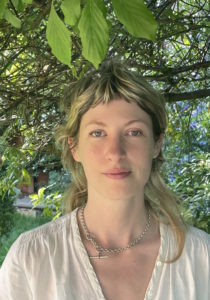
Dr Thirza Wakefield
Rosemary Pountney Junior Research Fellow
Academic background
Dr Wakefield studied English at the University of Bristol between 2006 and 2010. After working in the film production sector for some years and writing about film and poetry for publications such as Sight & Sound, Granta and The White Review, she returned to higher education with funding from AHRC–Midlands4Cities to undertake a PhD at the University Nottingham. Dr Wakefield was awarded her PhD in 2021, and has since taught at the University of Westminster on its ‘Film’ BA and ‘Film, Television and Moving Image’ MA courses. In September 2023, she joined St. Anne’s College as a Rosemary Pountney Junior Research Fellow (2023–24), and will spend the year exploring twentieth-century regional British drama (stage and screen), dialect theatre, orality, and repetition.
Teaching
Undergraduate: ‘Introduction to Language and Literature’ paper (Hilary Term)
Research interests
Dr Wakefield’s research engages with working-class cultural expression and articulations of regional and local identity. She is particularly interested in the relationship between working-class authorship and the serial mode. Dr Wakefield is writing her first monograph, based on her doctoral thesis, which examined working-class cultural production in the English East Midlands (1909–2019), and offered a comparison of the dialect plays of D. H. Lawrence, the serial prose fiction of Alan Sillitoe, and the serial television drama of Shane Meadows.
Recent Publications
– ‘Seriality’, in James Moran (ed.), Sean O’Casey in Context (forthcoming with Cambridge University Press, ‘Literature in Context’ series)
– ‘Loss, impasse, and the myth of class transcendence: Shelagh Delaney’s Charlie Bubbles (1968)’, in Deirdre O’Neill and Katerina Flint-Nicol (eds), Beyond the Council Estate; Cinematic Spaces of the Working Class (forthcoming with Edinburgh University Press, ‘Political Cinema’ series)